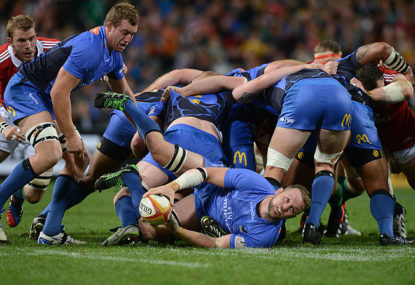Llanelli RFC is a proud club. One of the cornerstones of Welsh rugby, its history dates back to 1875.
They are so historic and traditional that their nickname is ‘Sosban Fach’, which is Welsh for ‘little saucepan’ – only the most venerable clubs manage to acquire nicknames as nonsensical as that.
Llanelli has produced such legends of the Welsh game as Phil Bennett, JJ Williams, Ieuan Evans, Derek Quinnell, Jonathan Davies and Barry John, among many others.
It has a pedigree to be envied by many great clubs from around the world.
But the greatest moment of Llanelli’s great story, the day that echoes through the ages more than any other even in a heritage as rich as this one, occurred on October 31, 1972, when the little Welsh town defeated the invincible New Zealand All Blacks 9-3.
It was a mighty, glorious, earth-shattering upset, that cemented Llanelli in rugby folklore.
Max Boyce wrote a poem about the game, from which the line “the day the pubs ran dry” became famous as a summary of the wild celebration that followed the victory.
The game was not for any trophy. It was not for competition points. It was not a Test match. It did not, for all intents and purposes, ‘mean anything’.
Except that it was Llanelli beating the All Blacks, and it meant the world.
But that was then, and this is now, and when a provincial underdog goes up against a world power these days, apparently the aim is not to pull off a triumph that will ring throughout history, but simply to avoid anyone getting hurt.
This is what we must take from Western Force coach Michael Foley’s decision to play a second-string XV in this week’s clash with the British and Irish Lions.
The Force, who are well out of finals contention, played seven debutants, wrapping their stars in cotton wool in preparation for the weekend’s dead Super Rugby rubber.
So, the Force fans were denied a chance to see their team’s best XV play an international side.
Seven first-choice Force players were denied the chance to play against the world’s elite, in a team that only tours here every 12 years.
The Wallabies were denied an ally striving their hardest to put a dent in the touring team before the test series. And everyone was denied even a sniff of a world-changing Llanelli-style upset.
As I’ve written before, the Lions tour is a precious remnant of an almost-vanished rugby era.
We don’t see many tours these days, not real tours, long parades around the home country where the visiting side takes on local teams in mid-week to give the home fans a real flavour of their rugby culture and spread joy and goodwill liberally across the land.
These days the tendency is for international sides to play international sides, and domestic sides to play domestic sides, and everybody keeps to their little boxes.
The throwback romance is enhanced when it is not just any touring team, but the Lions.
The mighty supergroup of world rugby, made up of bitter national enemies binding together to represent all the virtues of the British Isles against the upstart colonials.
The strengths of England, Ireland, Scotland and Wales combined, and not only that, but they arrive at such long intervals.
12 years it is since their last visit. 12 years it will be until their next one. The great majority of players who play against them this time out will be gone by the time they visit again.
Even at the very highest levels, most men get only one chance to face the Lions.
You can be damn sure the Force players will get more than one chance to play against the Waratahs with no hope of making the finals.
But of course the game against the Waratahs, technically, ‘means something’. It’s for points, however futile the acquisition of those points will be. The mid-week Lions game meant nothing.
It was a warm-up for the visitors, and an exhibition for the locals. There were no points on offer, no trophy. The winner ‘got’ nothing.
But if it had been entered into by coach Foley in the old spirit, the romantic spirit, the spirit of ’72 and the day the pubs ran dry…it just might have meant everything.
Hopefully there remain some coaches in this country who still dream that it can.





























































































